Transformative Experiences - NSSP Project in the Marshall Islands
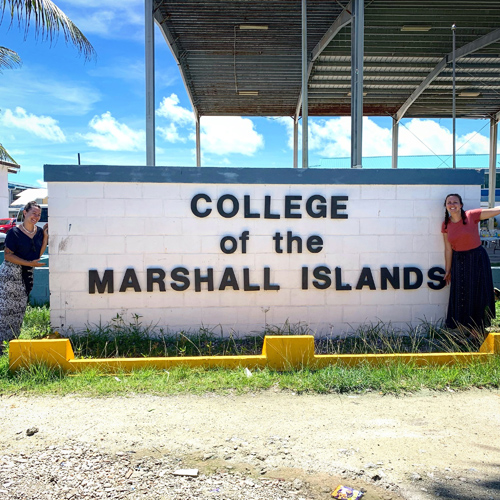
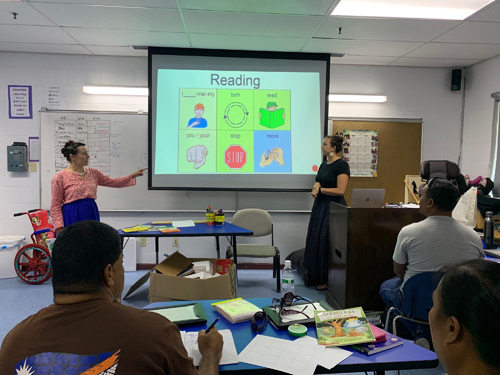
In partnership with the College of the Marshall Islands in Majuro and the University of Hawaii Center on Disability Studies, two SF State students participated in the summer of 2019 with faculty mentors, Dr. Kathy Ratliffe and Ms. Mellanie Lee, and teachers in the CMI Summer Institute to develop AAC tools with families and children in the Marshall Islands. SF State students assisted faculty in teaching and partnered with teachers from throughout Micronesia to develop AAC strategies to implement with children and families upon return to their own island communities.
SF State students prepared lectures for students who are members of the Navigating Student Success in the Pacifc (NSSP) Project, funded by the USDOE, Office of Special Education Programs to support teachers or students pursuing a B.Ed. degree or higher. These lectures ranged from topics including: introduction to AAC, AAC communicator profiles, making a switch from scratch and making a core vocabulary communication board. Activities accompanied the lectures allowing for creation of AAC systems and switches to implement in practice. Following the lectures, the students were given a quiz to test for comprehension and execution. Materials and supplies for the activities were brought to the island by the SF State students or were created using local resources. Data on their knowledge of AAC before and after the lectures was taken and can be shown upon request.
In addition to teacher training, the SF State students partnered with teachers to aide in intervention which took place in the family home with children with disabilities. Together with the NSSP teachers, SF State worked with families and translators to conduct evidence-based AAC assessment and intervention. Assessment reports were written by the SF State students for approximately 20 children with complex communication needs on the Island.
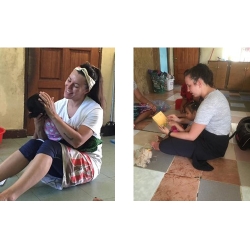
"When we entered homes there was nothing more than a bed or single rug in the room where the entire family would sleep together. The poverty throughout the island was apparent but it also did not bother the locals. It was their way of life they did not beg or ask for anything they simply wanted their children to be seen and understood by someone other than themselves."
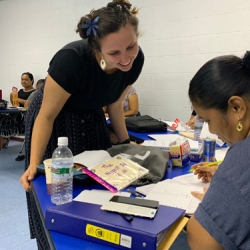
"I did not realize that a majority of the work I would be doing would be focused on training professionals as opposed to implementing intervention with children. I also found that providing training to professionals rather than implementing intervention was a much more sustainable way to ensure that children with complex communication needs would receive the services they would need long term, rather than providing minimal services to the children that would not be easily carried over into their homes."
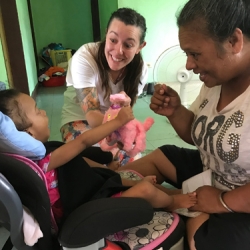
"The use of locals as translators was a huge strategy we implemented during home visits. Most families spoke little to no English and translation on why we were there and what we were doing was important in order to provide proper services. I also used many strategies to teach and restructure language to fit the culture and relevance. Collaborating with other professionals and learning how they apply their services and how we can work together to both meet our goals was another strategy I utilize."
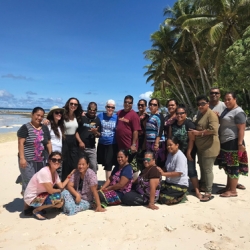
"I learned quite a bit about myself and my ability to be flexible in a culture that is so different from my own. I really enjoyed being outside of my "comfort zone." Seeing the students get excited about materials and get excited about what AAC users are capable of was really rewarding. I also learned a lot about how there is a tendency to group cultures into more generalized larger groups. It showed me how important it is to understand just how diverse the world is."